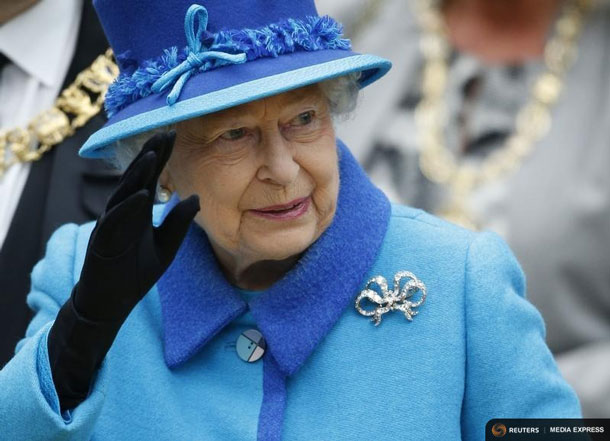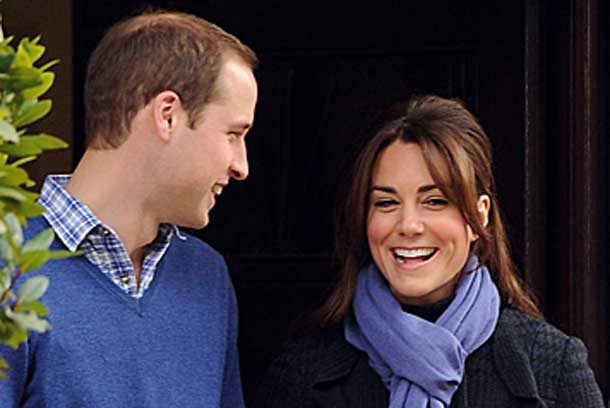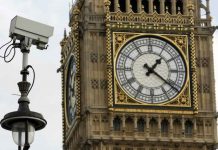
Queen Elizabeth must juggle her duties with her family responsibilities. But in her case, the stakes are higher and the public scrutiny is intense
By Constantine Passaris
Professor of Economics
University of New Brunswick
The House of Windsor is making headlines around the world for all the wrong reasons.
“The Firm,” as Prince Philip is fond of calling the British Royal Family, doesn’t look kindly on bad publicity.
Ringing in my ears is a line from William Shakespeare’s play Henry IV: “uneasy lies the head that wears a crown.” These words are an apt description of the trials and tribulations of our current monarch.
Whenever something like this happens, I feel sorry for one person in the Royal Family, who doesn’t deserve one more headache. Throughout her reign, Queen Elizabeth II has had to deal with these curve balls and still maintain the dignity of her lifelong devotion to her duties as Queen of the United Kingdom and Canada.
Like every working wife, mother and grandmother, Queen Elizabeth must juggle her duties with her family responsibilities. But in her case, the stakes are higher and the public scrutiny is intense.
I’m very fond of Queen Elizabeth. I admire her style of leadership, her dedication to her role as head of state, her devotion to her subjects and her ability to radiate dignity in everything she does. There’s no denying that she’s a class act.
She’s also not the sort of person to succumb to the glamour of her job. Rather, she’s focused on the earnestness of her duties.
There’s no denying that she has earned the respect of her subjects. She knows that the most enduring respect is the one that’s earned, not the one that’s commanded.
As the longest reigning monarch in the United Kingdom, she has advised every British prime minister since Winston Churchill. She has always done that part of her job privately and discreetly. I can’t think of anyone who personifies being a human encyclopedia of British and world affairs other than Queen Elizabeth.
At her coronation, she pledged that “I declare before you all that my whole life, whether it be long or short, shall be devoted to your service and the service of our great imperial family to which we all belong.”
At the age of 94, she remains tenacious about keeping her word.
Over the years, I’ve interacted with several members of the British Royal Family. I have attended formal events and social functions in New Brunswick, Nova Scotia, Prince Edward Island and other provinces where Queen Elizabeth was the guest of honour. In 2012, I was thrilled to be selected to receive the Queen Elizabeth II Diamond Jubilee Medal.
I’ve also worked with her husband, Prince Philip. In 1980, I was tasked with serving as the academic adviser for the New Brunswick segment of The Duke of Edinburgh’s Fifth Commonwealth Study Conference. The chair of that committee was the late Richard Oland of Saint John. The conference is held every six years and brings together young leaders from all parts of the Commonwealth to develop their global mindset and leadership skills.
As a young man with innovative ideas, I developed a new template for the conference. The New Brunswick committee was enthusiastic about my recommendations and directed me to present my proposal to Prince Philip during the next working session. Suffice to say that he was not at all keen on making any changes to the template he had developed over the last four conferences. Remembering the verbal exchange that day still brings a smile to my face.
A more informal interaction occurred with Prince Charles at a reception during his visit to New Brunswick in April 1996. Having been invited in my capacity as chair of the New Brunswick Human Rights Commission, I was introduced by then-Premier Frank McKenna by name and public service function.
Prince Charles, upon hearing my name, looked at me and said, “That’s Greek isn’t it?”
To which I replied. “Yes, just like your Dad.” This started a convivial conversation about the birthplace of Prince Philip.
It’s not common knowledge that Prince Philip was born in the Greek royal family’s summer residence Mon Repos, on the Greek island of Corfu. Prince Charles was particularly interested to hear that my maternal grandmother was brought up in the same neighbourhood in Corfu.
Dr. Constantine Passaris is a professor of Economics at the University of New Brunswick.
The views, opinions and positions expressed by all columnists and contributors are the author’s alone. They do not inherently or expressly reflect the views, opinions and/or positions of NetNewsLedger or our sponsors.





